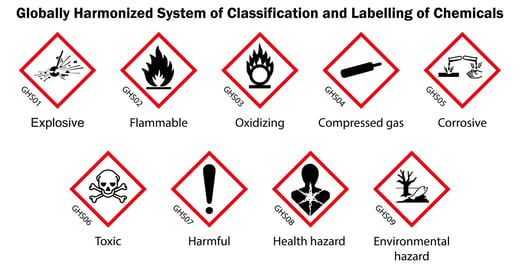One of the best methods for maintaining a safe work environment and letting workers know that their health and safety is a priority is holding regular safety meetings. Ideally, businesses would hold a daily safety meeting, even if it’s a short meeting.
The challenge can be choosing topics to discuss during toolbox talks that are relevant and useful. Once safety meetings stop being constructive, employees stop paying attention. To make sure August doesn’t become a month of complacency at the workplace, here is a list of topics that can be used during safety meetings at just about any workplace.
Building Safety
This topic may not be directly related to keeping employees safe while doing their jobs, although it does relate to workplace safety. In most buildings, there is some kind of safety or security protocol to follow to make sure only authorized personnel enter the building. There are also certain areas of a building where only authorized personnel are allowed. It’s not a bad idea to use a toolbox talk to discuss the importance of following any building security protocols or discuss general building safety.
Electrical Safety
For most people, electrical safety is something that’s usually taken for granted. Since most people don’t have to work with electrical panels or wires, it’s not a huge concern. However, there are things that every employee should know about electrical safety. Even if the lesson of the toolbox talk is simply about what areas of the building to avoid if you aren’t trained to work with electricity, this is a topic worth discussing with employees.
.jpeg?width=545&height=363&name=AdobeStock_286503805%20(1).jpeg)
Slip, Trip, and Fall Hazards
No matter the workplace, slips, trips, and falls are going to be a safety hazard. This is perhaps the most universal workplace safety concern, which is why this should be a frequent discussion topic during toolbox talks. Of course, what exactly is said during toolbox talks depends on the work environment.
Some workplaces need to be more concerned with fall protection than others. In traditional office settings, discussing slips, trips, and falls boils down to reminding people to be careful and wear proper footwear. In other locations, there can be frequent fall hazards and serious consequences if someone slips or trips. For the latter, discussing these types of hazards should be a point of emphasis during safety meetings.
Signs and Labels
All workplaces can benefit from placing warning signs in certain areas or on certain pieces of equipment. The same is true for labeling hazardous substances and tools. These signs and labels can also be discussed during toolbox talks. If there are any questions about what these signs and labels mean, a toolbox talk can provide employees with the opportunity to ask those types of questions. Keep in mind that toolbox talks don’t have to overload workers with new information. Sometimes they are best utilized simply clearing up any confusion and answering basic questions.

Standards and Regulations
Regardless of the industry, all companies should be concerned about meeting regulatory standards. Depending on the industry, there could be specific OSHA standards to meet. Otherwise, there are general OSHA standards that apply to all businesses. Either way, not only do company leaders need to be aware of these standards but employees should know about any standards that are relevant to their job. Toolbox talks can be used to share regulatory standards with employees so that they know whether or not they’re meeting standards the way they should. Obviously, if a business is falling short of meeting regulations, toolbox talks should be used to instruct employees on how to change that.
Working in Hot Conditions
Since it’s summertime, this is as good a time as any to talk with employees about how to work in hot conditions. For employees who aren’t in a temperature-controlled setting, taking frequent breaks and staying hydrated are the biggest keys to working in the heat. Obviously, every employer can decide the frequency at which breaks are appropriate and any other safety measures employees should be taking. Toolbox talks can provide a good opportunity to share all of the ways that working in hot conditions is different.
Working in Cold Conditions
Much like working in hot conditions, working outside when it’s cold is different than working under normal conditions. It requires employees to alter their clothing and take breaks in areas where they can get warm. Again, each work environment and business will be a little different regarding their approach to cold conditions. However, toolbox talks can be used to provide an introduction to how employees should react to various weather conditions.
Fire Safety
This is another topic that should be discussed frequently during toolbox talks. The risk of fire is going to be a little different in every workplace, although this is another universal safety hazard that impacts everyone. Do employees know how to vacate the building if there’s a fire? Do they know how to locate and use fire extinguishers if there is a small fire? These are the types of questions that can be asked during toolbox talks as a way to ensure that every employee knows the answer to them. Again, clearing up simple questions and concerns is one of the best ways to utilize toolbox talks.
Personal Protective Equipment
The use of PPE is critical to employee safety in any work environment. Ideally, all employees will know what kind of PPE they need for specific tasks and how to use that equipment properly. However, toolbox talks can serve as a refresher course on why PPE is important and how to utilize different pieces of safety gear. Based on the importance of PPE for a specific workplace, this is a topic that could be discussed frequently during toolbox talks.
Ergonomics
Practicing good ergonomics is important in any work setting. Even in a traditional office, there are ergonomic lessons that employees should be taught and reminded of during safety talks. Of course, in warehouses and similar settings in which physical labor is performed, good ergonomics can be even more important. It’s a good idea to remind employees of how they should be lifting and carrying heavy materials in order to prevent short-term and long-term injuries. With a toolbox talk, it’s easy to remind employees of sound ergonomic practices.
First-Aid Training
If a business wants to provide first-aid training for employees, it’s best to hold formal training. But that doesn’t mean toolbox talks can’t be used as a refresher course. In fact, even for those certified to provide first aid, it’s good to be reminded of the basics every now and then. With a toolbox talk centered around first aid, employees can ask questions and receive reminders about the proper way to provide first aid in an emergency.
Accident Reporting
This is a topic that many companies tend to ignore. Even if they have a formal way of reporting accidents and injuries, employees don’t always know what those are. If an accident doesn’t get reported, even if it’s a minor one, because an employee doesn’t know the procedure, that’s a disservice to everyone. Therefore, it’s a good idea to dedicate a toolbox talk every now and then to explain to employees how accidents should be reported.
Mental Health Awareness
Most aspects of workplace health and safety revolve around the physical safety of employees. However, it’s more important than ever to include mental health under that umbrella. Unfortunately, mental health isn’t always covered in a company’s safety training. Even if it is, that doesn’t mean that there can’t be occasional toolbox talks that focus on mental health. Employees need to know how to detect signs of stress, anxiety, and other mental health afflictions both in themselves and in their co-workers.
Like any other type of illness, early detection is key. Employees also have a right to know about the resources available to them if they find themselves struggling with mental health. Holding a toolbox talk or safety meeting that’s dedicated entirely to mental health can pass this information to employees and let everyone know the company’s position on assisting employees who may be struggling in this area.
Emergency Preparedness
Making sure employees are prepared in the event of an emergency is a great reason to hold a toolbox talk. Of course, businesses should hold emergency drills that simulate a real-life emergency, giving workers experience responding to such an event. However, toolbox talks about emergency preparedness can also be helpful. Even if there is no time for a drill, a brief toolbox talk can remind employees of emergency procedures and answer any questions they might have. After all, if employees are unsure of what to do in an actual emergency, it might already be too late to do anything about it.
Emphasizing Teamwork
It may sound a little corny, but a safe workplace is truly about teamwork. The safest work environments are the ones where everybody is looking out for everybody else. After all, it’s hard to maintain a safe work environment if everybody isn’t committed to making it a safe work environment. That’s why it doesn’t hurt to dedicate a toolbox talk every now and then to talking about safety as a team effort. Remind everyone of the importance of teamwork and what they can do to help keep their co-workers safe.

